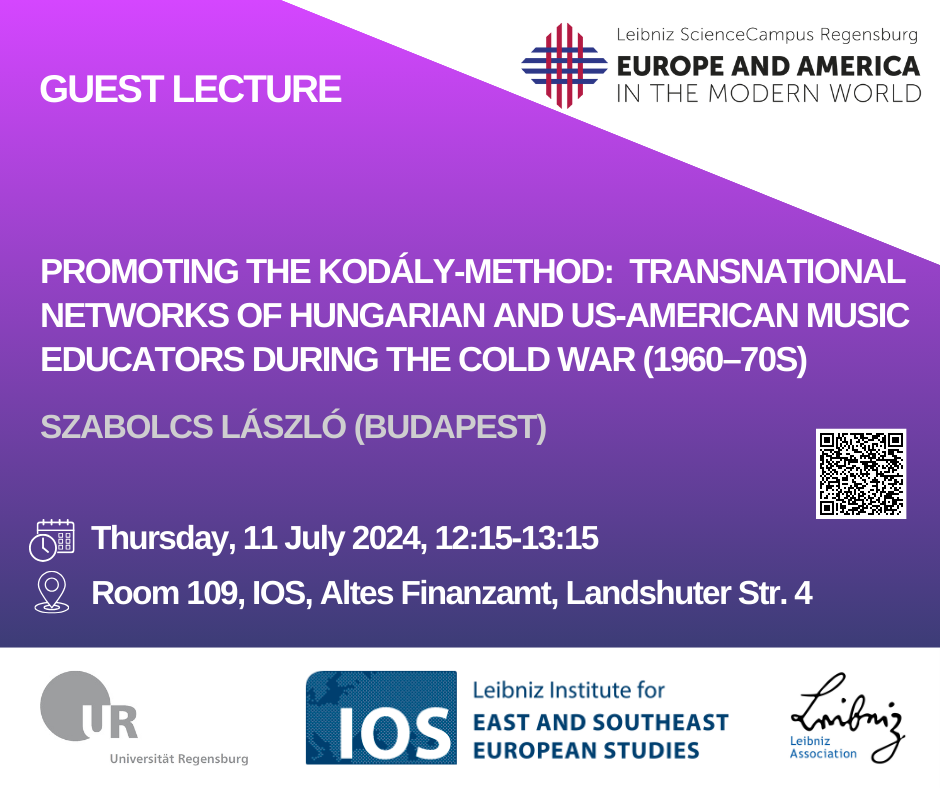11 July | Szabolcs László (Budapest) | Promoting the Kodály-Method: A Transnational Network of Hungarian and US-American Music Educators during the Cold War (1960s–70s)
When? Thursday, 11 July 2024, 12:15–13:15
Where? Room 109, IOS - Altes Finanzamt, Landshuter Str. 4
The ScienceCampus is pleased to present, in cooperation with IOS, a guest lecture exploring the transatlantic interconnections and networks shaping music education across the Cold War divide.
Abstract: The lecture will explore the transnational history of the Kodály-method for teaching music in Hungary and the US during the 1960s–70s. Starting from the credo: “Music should belong to everyone!”, the Hungarian composer and musicologist Zoltán Kodály (1882–1967) conceived of a novel approach to music education and ignited an international movement to reform the field. Kodály’s utopian vision was to democratize the access to and the experience of music through achieving universal musical literacy. Music teaching based on his ideas was implemented in Hungary after 1945, eventually generating worldwide attention by the 1960s, especially among pedagogues in the US. The presentation will examine how the collaboration of Hungarian and American women music teachers bridged the geopolitical divides of the Cold War period and produced an identifiable global brand for the Kodály-method.
Szabolcs László: Szabolcs László, PhD (Indiana University, 2022) works as a Research Fellow at the Institute of History, HUN-REN Research Centre for the Humanities, Budapest. He is an expert on Cold War cultural diplomacy and Hungarian–American academic relations and has published widely on these topics. László has received fellowships from the Social Science Research Council, the Leibniz Institute of European History in Mainz, the New Europe College in Bucharest, and the Institute for Advanced Study in Budapest. He is the book review editor of Hungarian Studies Review and co-editor of the forthcoming Routledge Handbook of Hungarian History.

